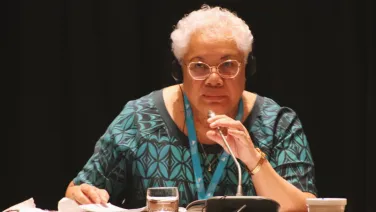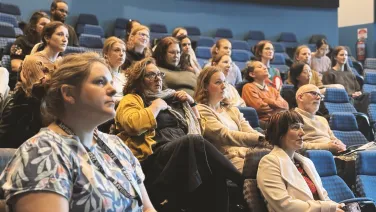Pacific Evidence for Informed Policies and Programs+ (Pac-EVIPP+)
Fostering collaboration among partners and programs across the Pacific and Southeast (SE) Asian regions
Project status
Content navigation
About

The Pacific Evidence-Informed Policies and Programs+ (Pac-EVIPP+) team secured a $7.5 million grant from the Department of Foreign Affairs and Trade (DFAT) through the Regional Health Partnerships grants to foster collaboration among partners and programs across the Pacific and Southeast (SE) Asian regions. This grant will be used to develop and support a robust applied epidemiology workforce in those regions.
This initiative spans four years from 2024 to 2028 and builds upon previous investments in the Pacific and SE Asian regions. Our project focuses 80% on Pacific Island countries including Cook Islands, Fiji, Kiribati, Nauru, Niue, Samoa, Solomon Islands, Tonga, Tokelau, Tuvalu, and Vanuatu, while allocating 20% of resources to Southeast Asia with a specific focus on Cambodia and Laos.
Our objective is to cultivate a skilled and resilient applied field epidemiology community in the Pacific and SE Asia regions. This involves creating and supporting advanced learning pathways, fostering multi-sectoral collaboration, and establishing networks for swift and effective responses to health security and public health threats.
Our main partners are the Ministries of Health in the countries we will be working with. We will work collaboratively with the Pacific Community (SPC), Fiji National University (FNU), South Asia Field Epidemiology and Training Network (SAFTEYNET), and the Association of Southeast Asian Nations Plus 3 Field Epidemiology Training Network (ASEAN+3 FETN) to achieve our objective.
The Pac-EVIPP+ project has two pillars and five main activity areas that cover the Pacific and SE Asia regions as listed below.
Pillar 1: Strengthening regional applied epidemiology workforce training and pathways.
- Activity 1: Developing regional level advanced FETP pathways (Pacific countries)
- Activity 2: Supporting public health leadership and executive awareness in applied epidemiology
Pillar 2: Building a regional culture of knowledge, sharing and collaboration.
- Activity 3: Establishing and supporting a Mentorship program within and across regions
- Activity 4: Supporting Communities of Practice
- Activity 5: Identifying and providing ongoing learning opportunities









